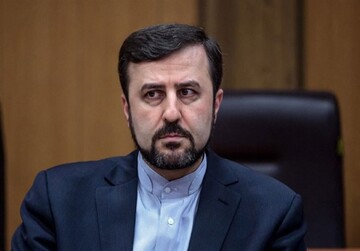Alena Douhan, UN Special Rapporteur on the negative impact of unilateral coercive measures on the enjoyment of human rights, paid an 11-day visit to Iran and met with officials from 30 ministries and government agencies, Foreign Minister, Interior Minister, Justice Minister and Vice President for Women’s Affairs and Secretary of Islamic Republic of Iran Human Rights Headquarters Kazem Gharibabadi.
She also met with officials from health, medicine, food, aviation, insurance, banking, transportation, housing, energy, agriculture, economy, tourism, refugees, crisis management, social welfare, women, children, Red Crescent, and sports sections as well as university professors, NGOs, private sector, special disease patients, and war veterans.
Gharibabadi said that Iran’s government had no interreference in the special rapporteur’s schedule regarding NGOs and civil society, as she did her job as she had planned.
Primary and secondary sanctions, threat to sanction and overcompliance have exacerbated human rights situation in Iran while the Central Bank of Iran must be completely safe from these measures, Gharibabadi cited the rapporteur as saying in her report.
The Iranian official also said that the maximum pressure policy and threats against countries, individuals and entities constitute a violation of principle of cooperation between states, peaceful settlement of disputes, equality of sovereignty, and non-interreference in internal affairs of other countries and the existing sanctions against Iran violates the minimum commitments in international and regional HR treaties.
He added that the anti-Iran measures taken by the US could be obviously labeled as unilateral coercive measures which have been condemned in various Human Rights Council and UN General Assembly resolutions.
Sanctions against Iran’s exports and its central bank and other entities and individuals have resulted in a cut in the government’s revenues, increase in inflation and poverty, lack of resources for low-income people and also the government’s inability to maintain infrastructure like schools, hospitals, housing, refineries, roads and planes, as well as development and environment-related plans, according to Gharibabadi.
He also noted that Iran’s inaccessibility to modern machinery, spare parts, technology, and software along with blocking of its funds in several countries and being deprived of emergency loans have damaged economic and social rights of the Iranian people and their rights to health, life, food, housing, etc.
Despite waivers for food and medicine, the exemptions have proved practically ineffective, Gharibabadi said, adding that the sanctions have negatively affected the right to education, international scientific, sports and cultural cooperation.
The UN rapporteur, he said, has though made some recommendations to Iran to mitigate the impacts of the sanctions while emphasizing that nothing could justify fundamental violation of human rights.


Your Comment